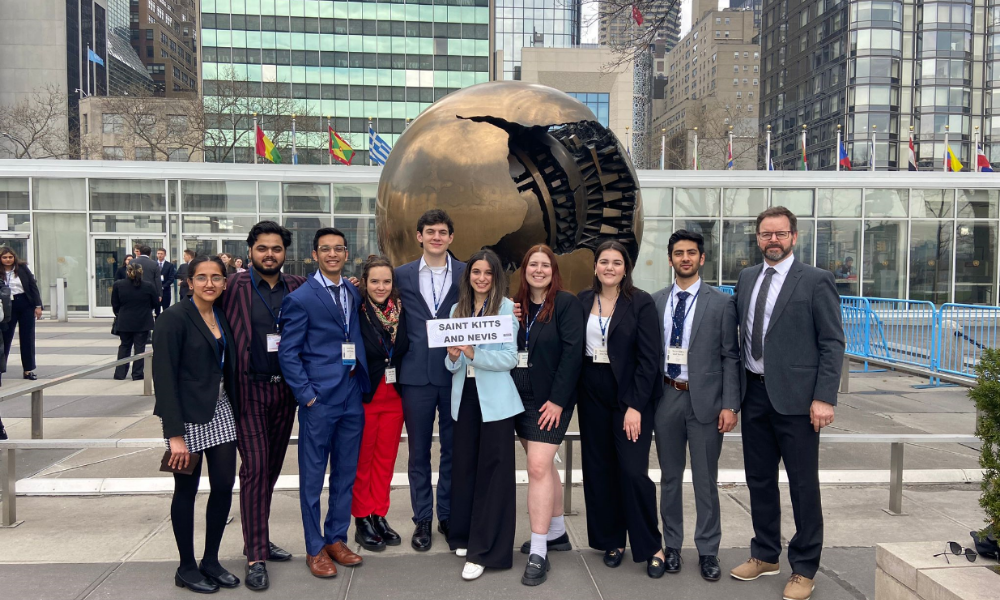Political Science Program
 The Saint Mary's Model UN team in New York City with Political Science professor Dr. Marc Doucet
The Saint Mary's Model UN team in New York City with Political Science professor Dr. Marc Doucet
Why study Political Science?
Political science is a fascinating and wide-ranging field, touching on topics like different political structures, and how countries are governed. You’ll study governments and other political units, social justice, human rights, gender equality, conflict and security, international development, environmental sustainability and more.
The Saint Mary’s approach
Our Political Science and Global Development Studies department is small, student-focused and dynamic. We offer courses on important contemporary issues as well as many opportunities for awards and exchanges, making for a rich and rewarding learning experience.
Hands-on learning
Political Science students have travelled to New York for the annual Model UN conference for course credit, participated in international exchanges with Norway, Hong Kong, Finland, France, Mexico, Japan and Uganda and worked at the Nova Scotia Legislature part-time during the school year as a legislative page.
Our students have also volunteered at the Halifax International Security Forum, attended lectures by a member of Omar Khadr’s legal team and received many academic awards, including the William J. Dalton Award for Political Science and the prestigious Homburg Mobility Award.
Sample courses offered:
- Politics: Contemporary Issues: This course explores the multi-faceted nature of contemporary politics, and, in so doing, introduces students to various aspects of the Political Science discipline. The aim of the course is to convey how ideas, frameworks, institutions and actors relate to current political debates and ongoing democratic challenges, both locally and globally. Through a critical examination of significant political theories and practices, students will develop a broad and general understanding of the nature, scope and range of political action in the contemporary world.
- Politics and Globalization: This course will introduce students to the political, economic, social and cultural processes which commonly fall under the term globalization. The objective is to introduce students to some of the central global forces that are shaping our contemporary political world.
- Spying and International Politics
- Politics and Sex: The study of politics is about the study of power. The overall objective of this course is to show how power infuses gender in ways that focus on sexuality. Students explore the connections between politics, gender and sexuality by looking at such topics as rape, sexual violence, pornography, prostitution and trafficking.
- Democracy and Dissent: Examine the fundamental concepts of democratic theory, including rights, equality, freedom, and sovereignty. Students will become familiar with classic democratic principles and will learn to distinguish between democratic dissent, neoliberal democracy, populism, and authoritarian forms of governance.
Future career options:
- Political analyst
- Politician
- Civil servant
- Intelligence officer
- Lawyer
- Diplomat
- Political advisor
What our students are saying
“The faculty is exceptional. They really care about students and want to get the best out of them. Dr. Keeble really makes students think, not only when they are in class – the discussions continue out of the class, too. She’s really good at getting people engaged. She’s inspiring.”
- Emma Fineblit, fourth-year double major Honours Political Science and International Development Studies